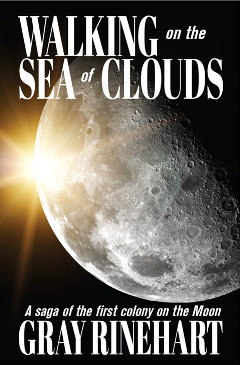On this Christmas Eve, some thoughts leading up to Christmas — for whatever they might be worth.
According to Saint Luke’s research, presented in the Gospel that bears his name, angels announced Jesus’s birth to shepherds as they stood night watch over their flocks. We don’t know whether Luke was able to question one of the shepherds who was there that night or (more likely) the story came to him through untold number of tellings and retellings. What did those angels really say? And what did they mean?
The translation I grew up with, the King James Version, closes that episode with the angelic proclamation, “Glory to God in the highest, and on earth peace, good will toward men.” I particularly like the poetic nature of that version.
Another translation I generally like, the New American Standard Bible, renders Luke 2:14 as, “Glory to God in the highest, And on earth peace among men with whom He is pleased.” “Peace among men” gives a different feel than “good will toward men,” though, and leaves me a little cold. Other translations, notably the New International Version and the Berean Study Bible, give the last phrase as “peace to men on whom His favor rests,” which I do not like at all.
I am not a Bible scholar; I know no ancient Greek; so I will not presume to debate the merits of any translation. It intrigues me that in the Greek the difference comes down to a single letter: specifically, the last letter of the verse in the Codex Sinaiticus was erased (apparently the erasure is visible), and that single change made “on earth peace to men of good will” into “on earth peace, to men good will.” How much does that change the sentiment?
I’ve heard it taught that the proclamation is a promise of God’s peace and good will coming to earth in the person of Christ. I’ve also heard that it is more a prayer — it is, after all, a multitude of angels praising God, since the specific message about Jesus has already been related. That idea is particularly worthy: the angels first give reverence and worship to God, and then ask that peace be manifest on the earth.
But of late I’ve come to think of it in a different way. I doubt that mine is an original thought, but I’m not prepared to conduct an exhaustive search to see who else has presented it. To my way of thinking, “Glory to God in the highest” is clear enough. The creator of everything is worthy of praise. After that, I find that I prefer “on Earth, peace; to men, good will” — giving a definite separation between peace and good will — because it turns the entire verse into a triad that moves from the heavenly to the earthly to the individual.
To God, glory: not peace, because the creature is not in a position to offer peace to the creator; and not good will, because the creature’s good will cannot match the creator’s. On earth, peace: not glory, because earthly glory is more a product of victory in conflict than of peace; and not good will, because good will is something best expressed person to person. To men, good will: not glory, because compared to God men deserve no glory; and not peace, because to achieve peace — especially any secure, lasting peace — requires first good will among and between people.

(Image: “Peace on Earth,” by Sam Howzit, on Wikimedia Commons.)
“There is no peace on earth, I said,” according to the poem “I Heard the Bells on Christmas Day” — but it seems to me that, if there is no peace, it’s because there is precious little good will.
And so, I will try with the time remaining to me to be a man of good will. No doubt I will fail, and have to try again. I trust that God will forgive me those failures, and I hope my fellows will forgive me as well.
Part of the reason I will fail goes back to the translation that is probably more accurate: “peace to men of good will.” First, that sounds more like a promise of God’s peace than a prescription for achieving peace. Even if it is a promise, it doesn’t absolve us of all responsibility in the matter. After all, Saint Paul instructed the Christians in Rome to, “If it is possible, so far as it depends on you, be at peace with all men” — which remains a good principle for all of us to follow.
The second reason I’m uncomfortable with “peace to men of good will” is that it seems no great challenge to wish peace to people of good will or to act peacefully only toward people of good will. It is far more difficult to live peaceably when we are confronted by people of ill will. That’s why “turn the other cheek” is so revolutionary — and so difficult. And, as noted above, I explicitly reject the idea that God’s peace is offered only to those “on whom His favor rests”: I believe God’s peace is offered to all, though unfortunately many reject Him, and it.
All of that being said, tomorrow is Christmas, and tonight and tomorrow we celebrate Jesus’s birth. But even though we are fairly certain he was born in an entirely different time of the year, whenever it happened originally the annunciation still rings out, and the annunciation is fulfilled: Jesus glorified God; Jesus’s teaching, death and resurrection offer a “peace that passes understanding” to any on earth who would accept it; and Jesus empowers us to act as men of good will, i.e., gives us wisdom and strength and discernment to show good will toward others — if we choose to do so.
“Joy to the world! The Lord is come! Let earth receive her King!”
Merry Christmas, one and all.



 by
by 














